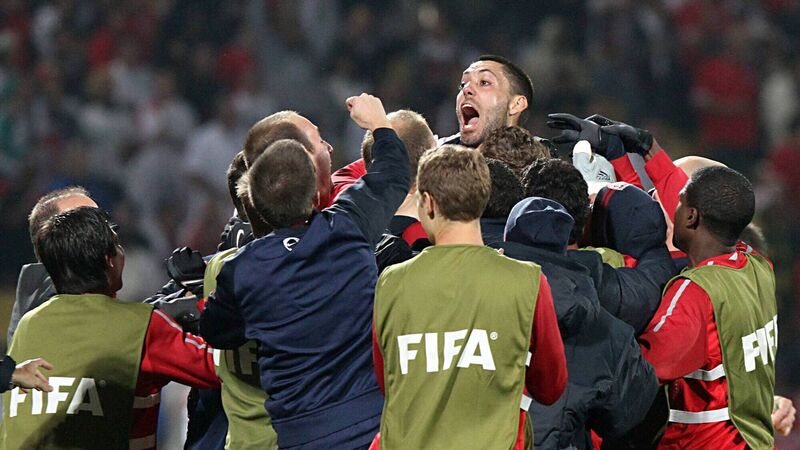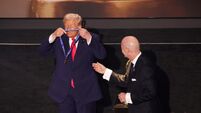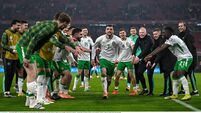John Riordan: United States no longer okay with a post-Thanksgiving stuffing

DEMPSEY THEN: Clint Dempsey celebrates his game-tying goal against England with the USA bench in 2010. Picture: Andy Mead/YCJ/Icon SMI/Icon Sport Media via Getty Images
The US have scored two goals in the two World Cup showdowns they have refused to lose against the English.
Both games endure deeply in the American soccer psyche; a miraculous win in 1950 that wasn’t immediately reported by the New York Times because it wasn’t deemed credible and a tense draw in 2012 that felt like a victory because it carried with it the ghosts of that earlier result.












